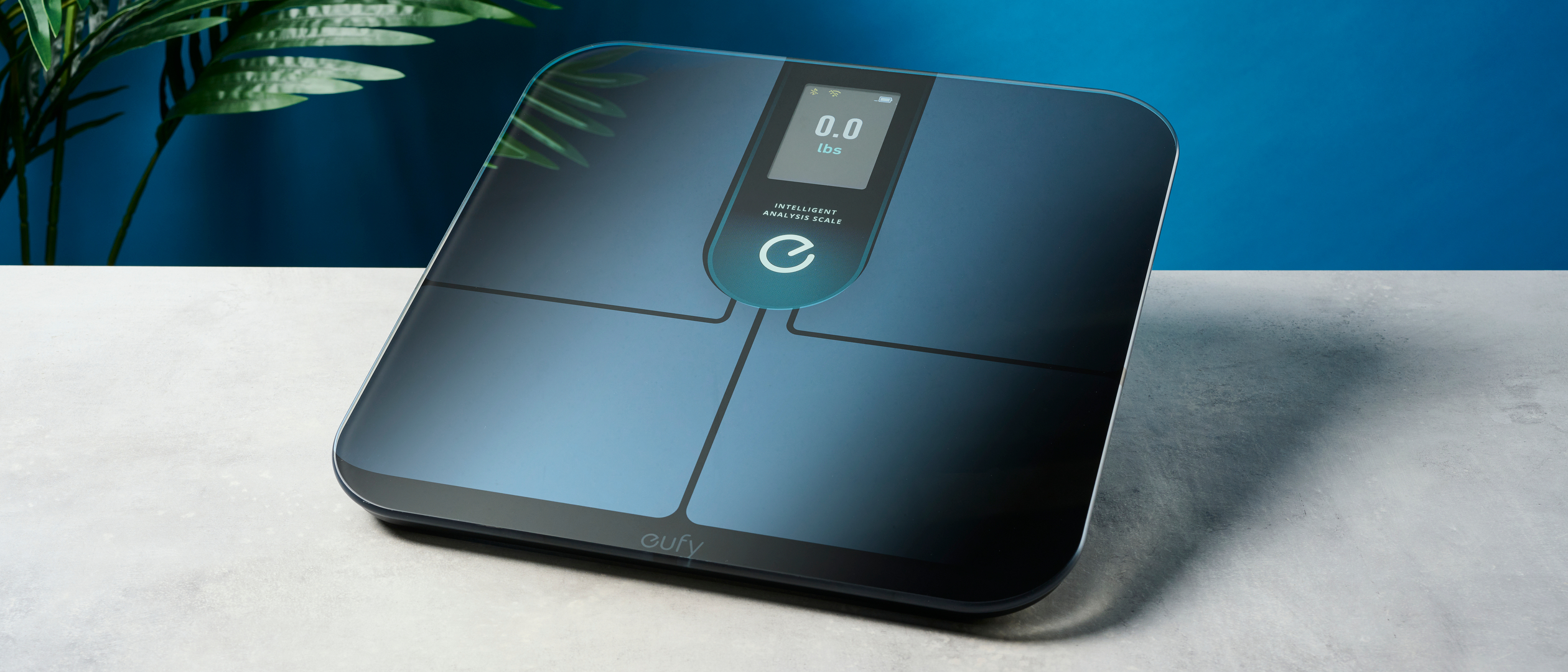Tom's Guide Verdict
The Eufy Smart Scale P3 offers detailed insights into your health, with 16 bioelectrical impedance analysis metrics, trackable over time through the solid EufyLife app. It also features numerous modes for pets, babies, pregnancy and athletes. Third party app support is limited though, controls are frustrating and there’s no safeguarding mode for those triggered by weight. The P3 is worth considering, but not best in class.
Pros
- +
16 impedance measurements
- +
Sleek design
- +
Unlimited profiles
- +
Solid app
- +
Pregnancy, pacemaker and athlete modes
Cons
- -
Frustrating controls
- -
User detection poor
- -
No eyes closed mode
- -
Limited fitness app support
Why you can trust Tom's Guide
Dimensions: 12.8 x 12.8 x 1.0 inches
Android/iOS: Yes
Max users: Unlimited
Stats: Weight; BMI; body fat; body fat mass; lean body mass; visceral fat; subcutaneous fat; bone mass; muscle mass; skeletal muscle mass; protein; BMR; heart rate; water levels; body age; body type
Max weight: 440 pounds
Supported Fitness Apps: Apple Health, Fitbit
Batteries: 4x AAA (provided)
The Eufy Smart Scale P3 ($89) is the latest and most expensive in Anker’s Eufy brand lineup of smart scales. The P3 boasts a range of useful features to help Eufy scales compete with the best smart scales out there from the likes of Garmin and Withings: it takes 16 body measurements; offers modes for pets, pregnancy and athletes and pairs with a pretty solid companion app to help you see and manage trends.
The P3 isn’t without its issues. Onboard controls proved frustrating in use, user detection is very poor and rivals offer better connecting with third party fitness apps. The P3 also does little for those who find weight triggering, lacking the “eye closed” safeguarding mode of Withings scales, and prompting users daily to get on the scales via the Eufy app’s push notifications.
Still, this is doubtless a strong scale for the money, and should definitely be one for your shortlist. Find out more in our full Eufy Smart Scale P3 review.
Eufy Smart Scale P3 review: Price & availability
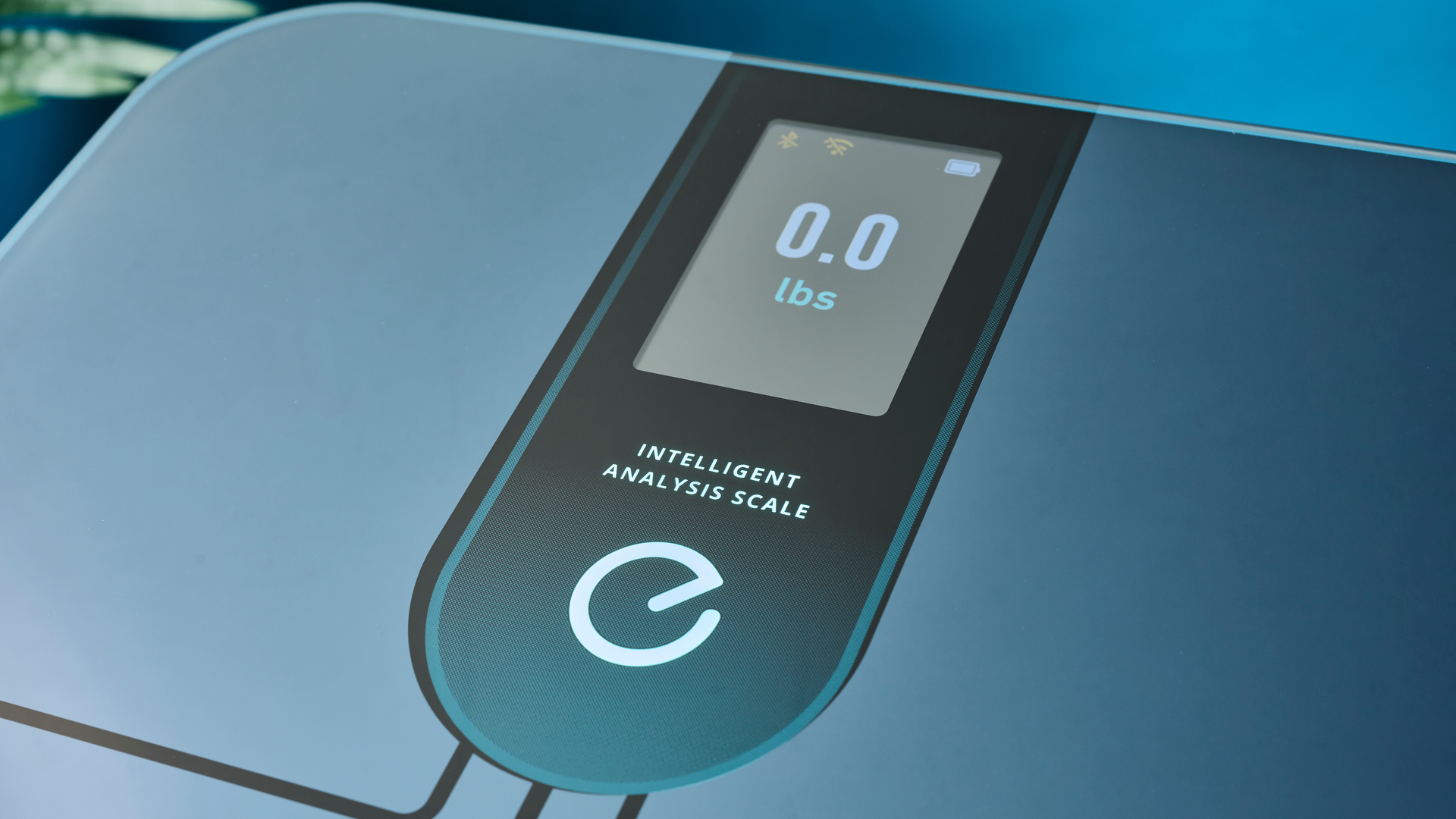
The Eufy Smart Scale P3 costs $89 from Amazon. It currently does not appear on Eufy’s U.S. website. It is available in a single colorway: blue and black. $89 puts the P3 at around the same price point as the Withings Body+ ($99) and the Withings Body Smart ($99).
Eufy Smart Scale P3 review: Design & display
Despite being a mid-range scale, the Eufy Smart Scale P3 looks premium, with a very similar overall design to the much pricier Garmin Index S2 ($149). It certainly looks much higher-end than the Fitbit Aria Air we tested recently, which looks more like a traditional scale.
The P3’s dark blue and black glass look very sleek, although they pick up water spots and footprints very easily. Thankfully, I found the scale easy to clean with just a wet cloth and towel to dry. On the base you’ll find the battery compartment, unit change button and four grippy rubber feet to keep the scale from slipping.
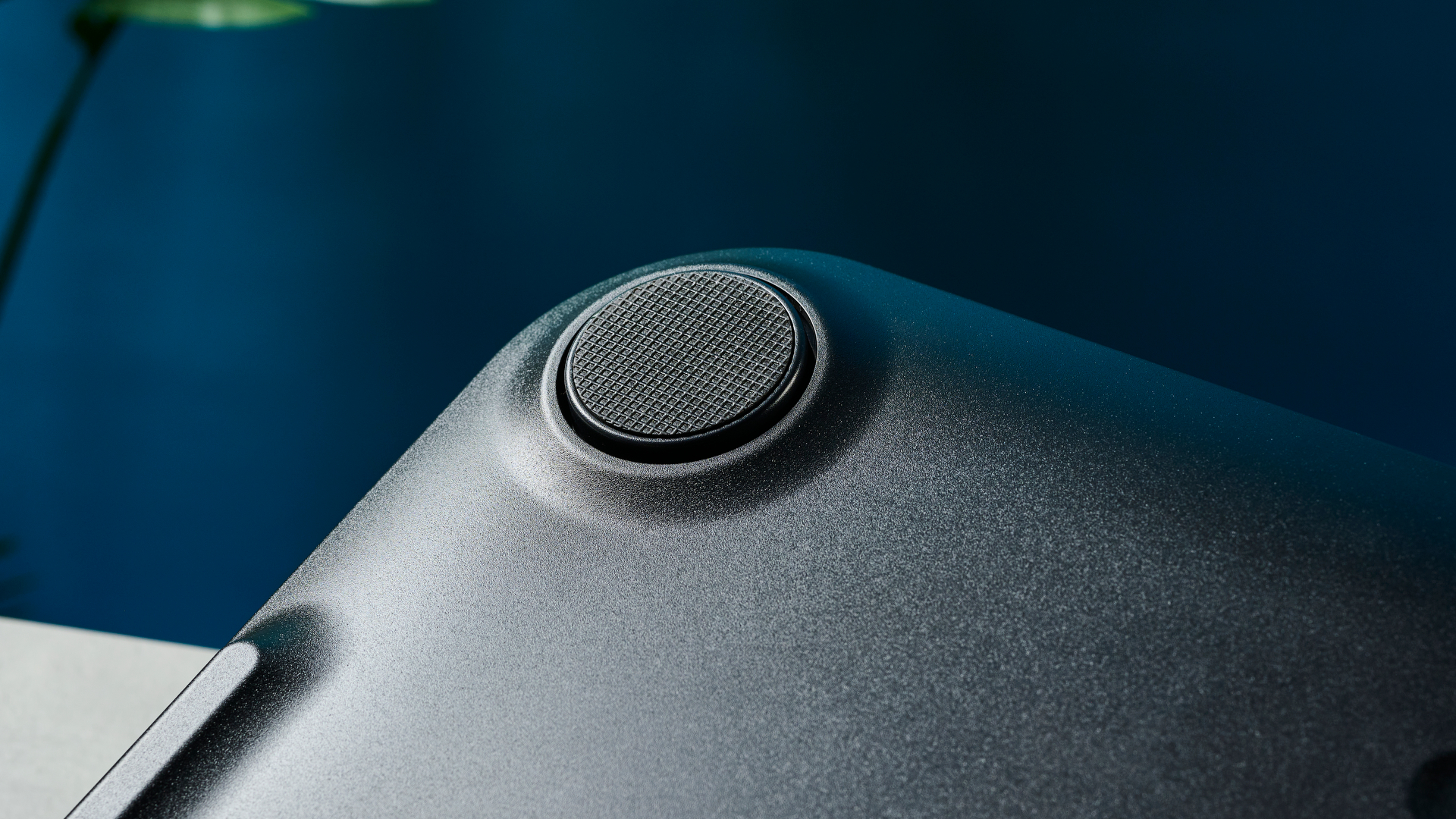
The display is large and colorful, and I had no issues reading it while looking down and with a light behind my head. There are battery, Wi-Fi and Bluetooth indicators, so you’ll know where you stand with charge and connection. Power is indicated by the display turning on and a Eufy “e” logo lighting up in the center.
The scale measures 12.8 x 12.8 x 1.0 inches and weighs around 70 ounces. Like any scale, storage is a bit of a pain — I tucked mine next to a small chest in our bathroom, but heard the odd clatter in the night as it fell over.
The Eufy Smart Scale P3 uses bioelectrical impedance analysis (BIA) to measure your stats. That’s a fancy way of saying it shoots a small electrical current through you and measures the voltage drop, to work out the composition of your innards. Some of this is shown on the scale’s display, but to see and track the full range of results, you’ll need to use the Eufy Life smartphone app for iOS and Android.
Eufy Smart Scale P3 review: Setup
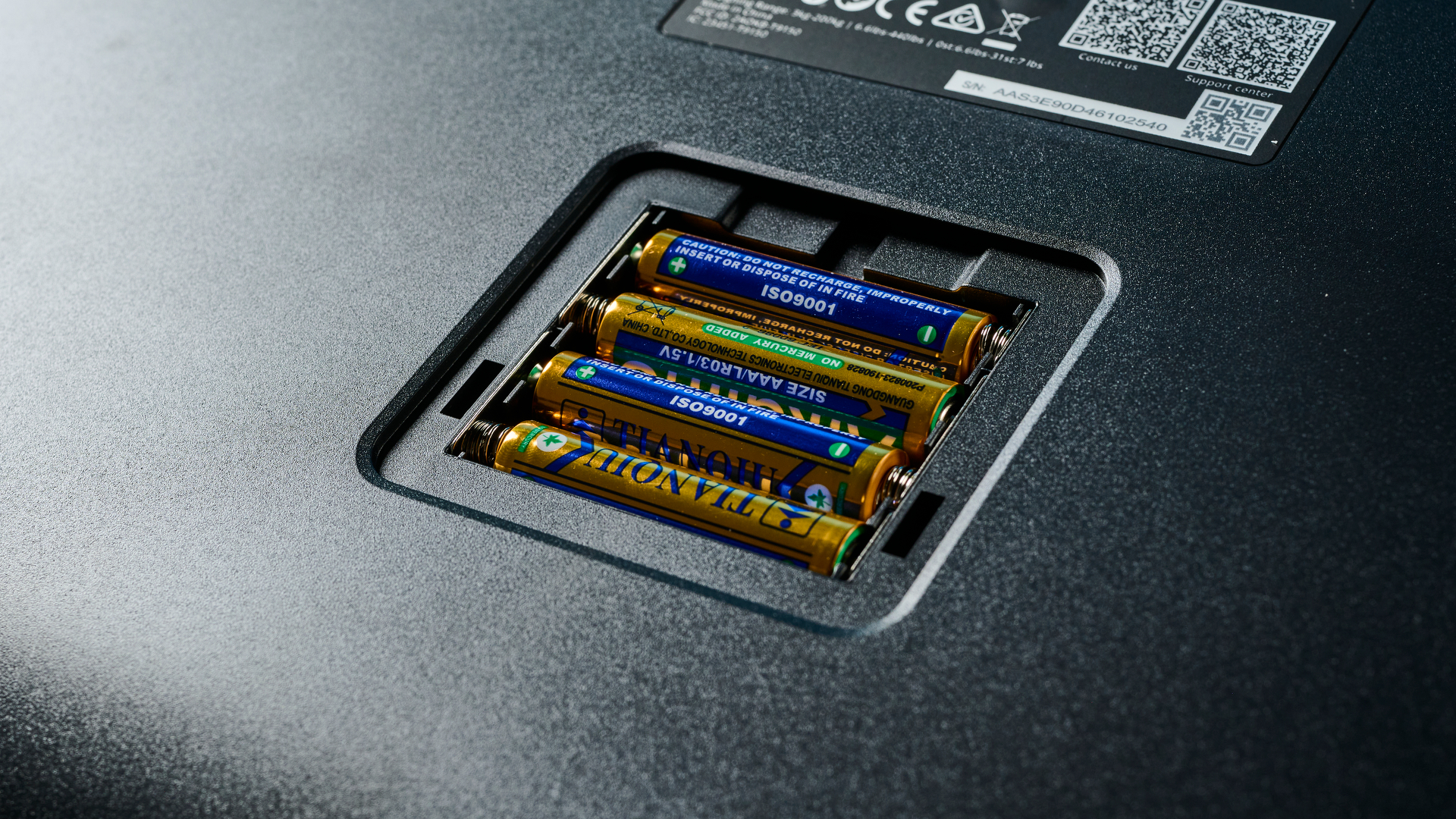
The Eufy Smart Scale P3 is straightforward to set up. There are four AAA batteries included, and a set of instructions that show you how to activate the scale by stepping on it, and change weight units via the rear button.
The P3 will function without its partner app, but you won’t be able to see more than 3 of the 16 BIA measurements. The app runs you through Bluetooth and Wi-Fi setup, the latter allowing you to take measurements even without the app running, which can then be uploaded to your profile. All you need to do is set up a profile, tap in your details and stand on the scale to take your first measurement.
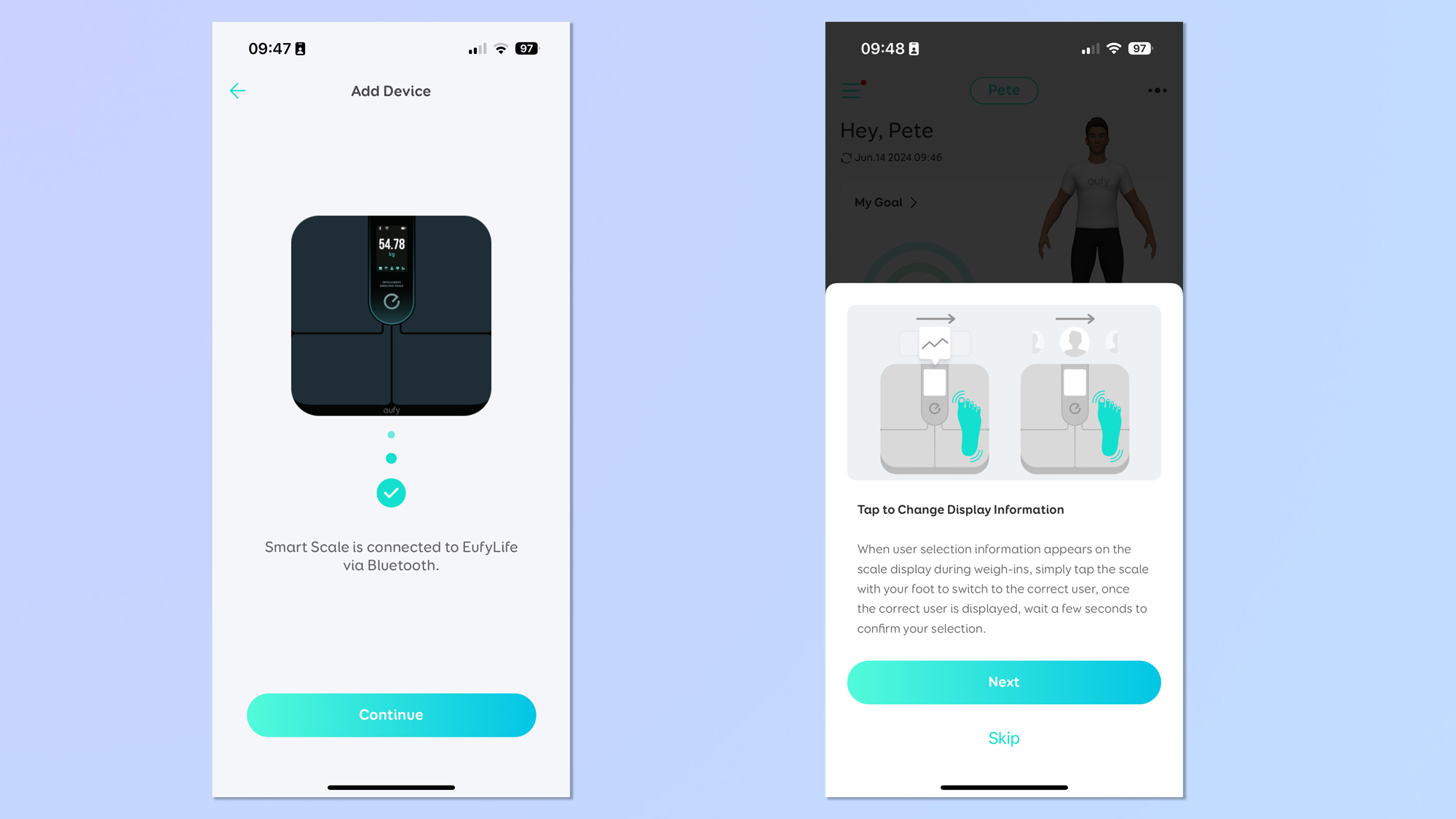
You can then start to set up other profiles — there’s no limit — for your family members, babies and even pets.
Eufy Smart Scale P3 review: Measurements
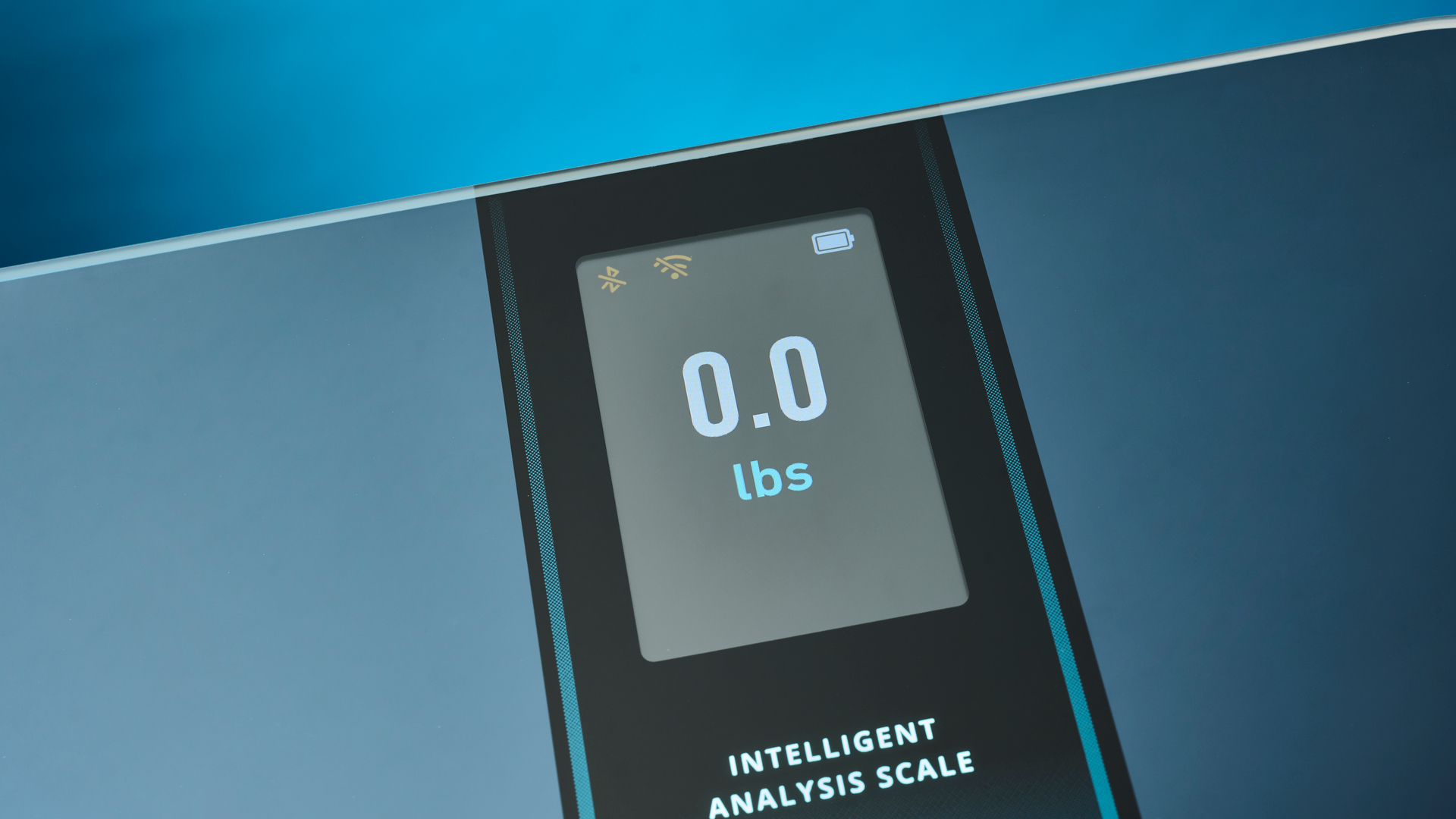
Many smart scales use BIA to distinguish between different people — the Garmin Index S2, for example, can work out which user is standing on it based on their past BIA results. Eufy claims the scale features “multi-user identification”, but this is a little misleading.
In testing, the P3 was unable to differentiate between my partner and I standing on the scale and would instead flag an error that the results varied too greatly from one another. Every time, we would have to tell the scale manually who was on it, either by stamping on the scale to change profile manually, or by editing the results later in the app to set them to the right person — not great if you want to keep results private.
What’s more, even when you set the profile to the person (or pet) who is about to be measured in the app beforehand, the scale still attributes all results to the primary user by default. Essentially, the P3 will let you identify multiple users, but won’t do it for you.
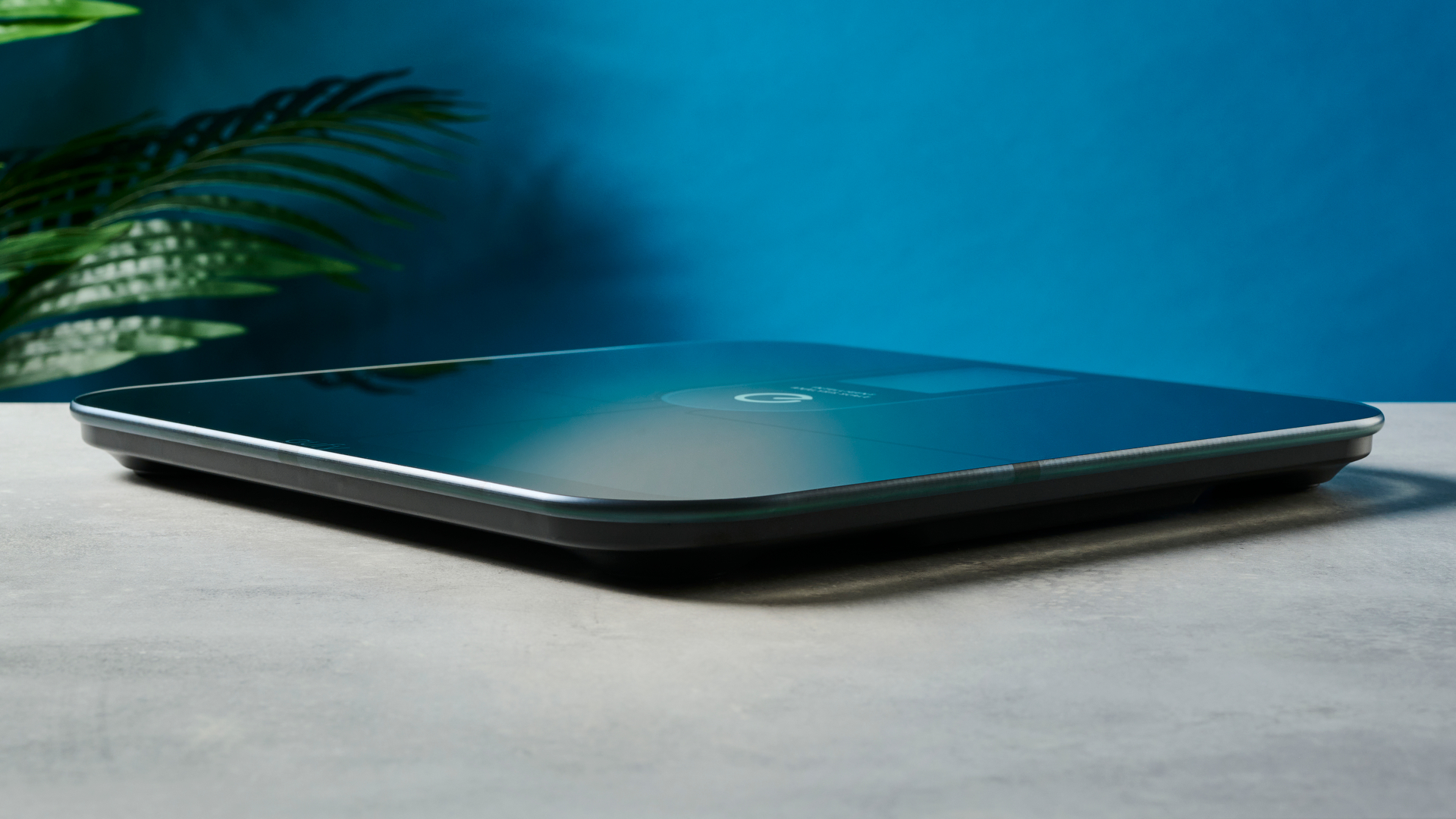
The P3’s foot tap sensitivity is very poor...
Compounding the issue yet further is the fact that the P3’s foot tap sensitivity is very poor, and you’re only given a couple of seconds to change profile manually on the scale. In testing, I would foot tap to try and change user, only for the scale to switch back to the weight screen while I was making my way through the list of profiles, attributing my measurements to Nutty the greyhound. Infuriating.
Once you do get results, they’re pretty detailed, and I found them very enlightening. I’m no fitness buff, so a lot of the P3’s measurements were the first I’d ever seen. The scale measures 16 metrics: weight; BMI; body fat; body fat mass; lean body mass; visceral fat; subcutaneous fat; bone mass; muscle mass; skeletal muscle mass; protein; BMR; heart rate; water levels; body age; and body type. Your data will be plotted on graphs so you can track progress over time.
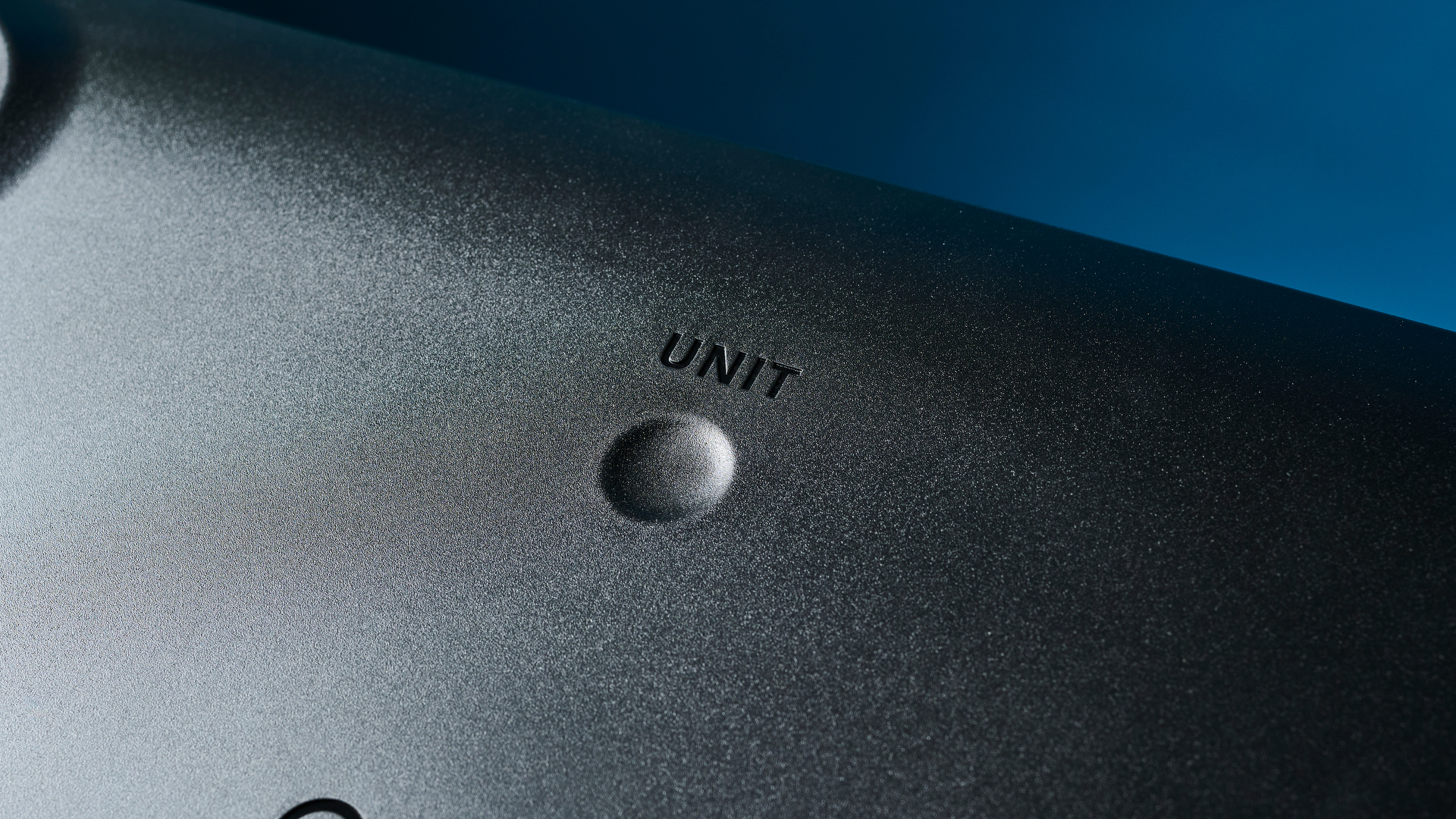
The Eufy Smart Scale P3 is able to connect to some of the best fitness trackers, but currently is limited in third party connections to only Fitbit and Apple Health devices. If you’re pregnant or have a pacemaker, the P3 offers a simple mode which won’t shoot electricity through you, and will essentially turn it into a traditional scale. There is an athlete mode, though, with different analysis algorithms to suit the body compositions of the ultra fit — a feature missing on the Eufy P1 Smart Scale.
Eufy Smart Scale P3 review: App features
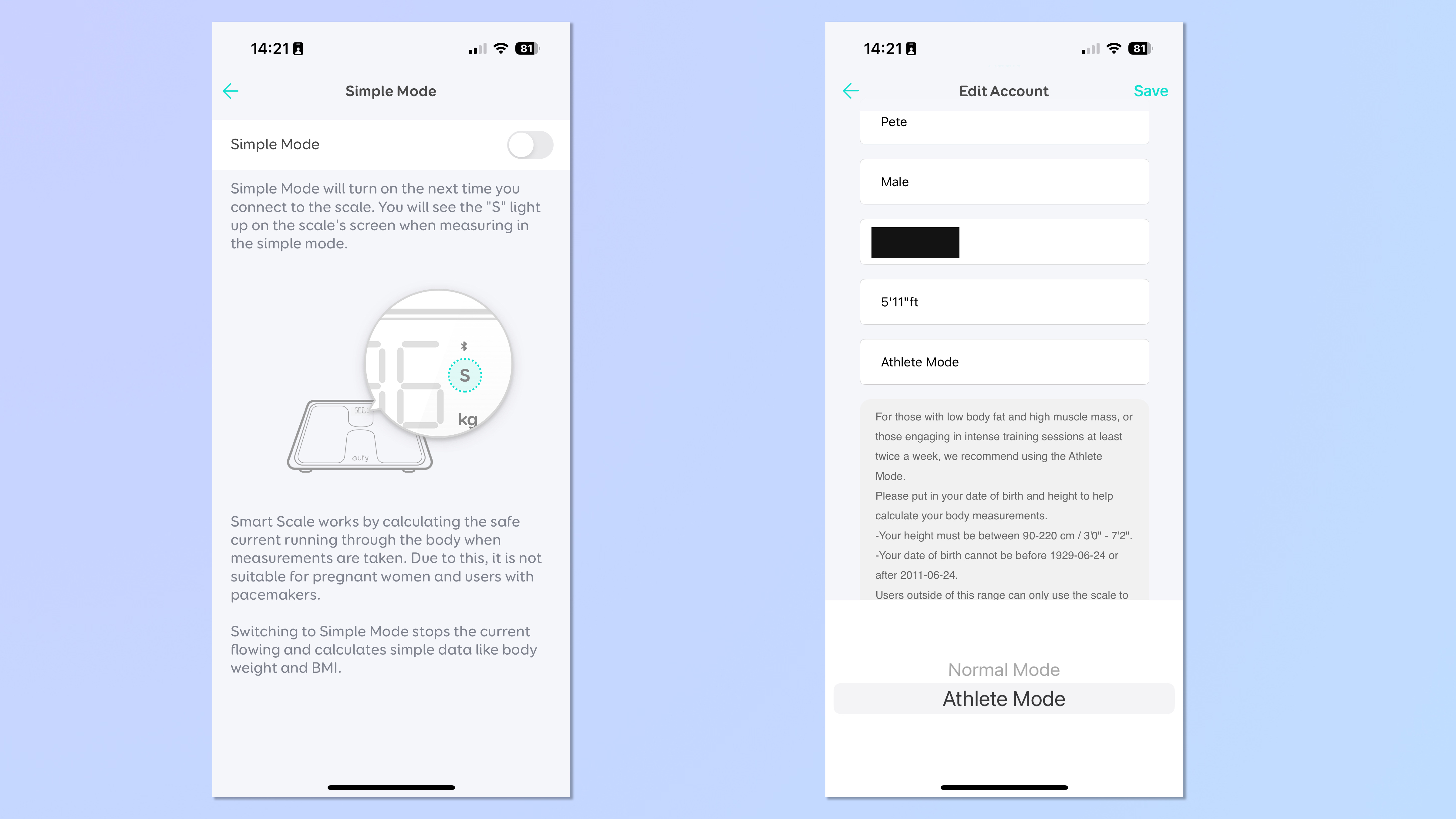
I found the EufyLife app very insightful, and there are lots of useful features on there to help you achieve your goals. Profiles are located at the very top of the app and easy to flick between. Each profile displays goals and most recent data panels at the top, allowing you to quickly assess your current stats and progress in an instant.
There are also graphics for long term tracking, plus a calorie counting tool — this is useful, especially given the app is best placed to work out an appropriate calorie intake for your goals, but there’s no scanning method to enter food via barcode so you’ll need to enter everything manually.
Tapping on a metric, such as BMI or subcutaneous fat, will open a panel explaining what the measurement is all about, analysis of your result and lifestyle recommendations to help you work towards or maintain a healthy reading. You can shift these metrics around on the app screen to prioritize the ones you care about most.
The app also lets you export your results (seemingly just as a PDF or image, and not as a CSV file if you like spreadsheets), view all history and also check out any unmatched data for you to assign to a profile (useful given the issues I had with matching results to profiles above).
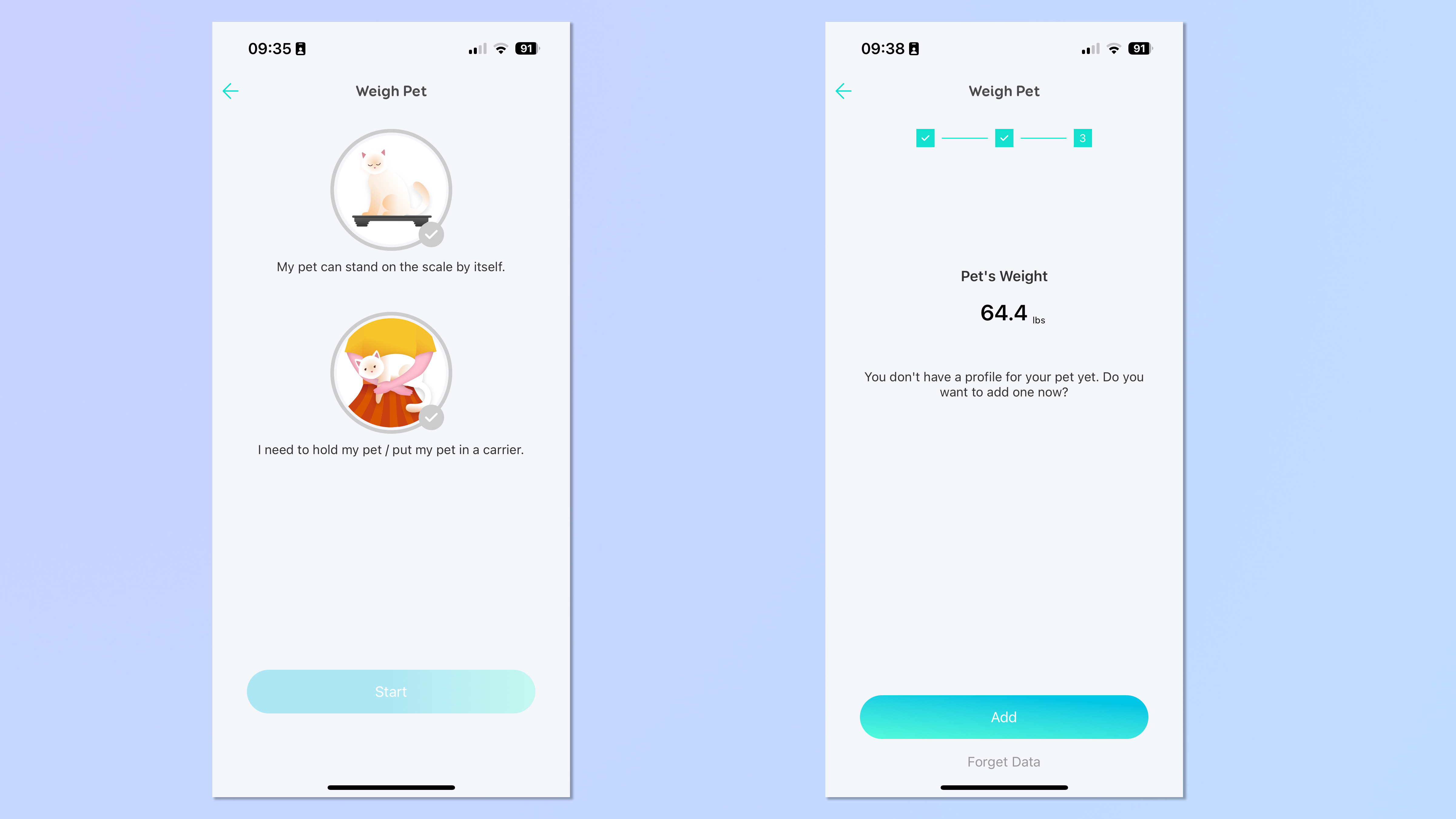
There’s a trends page, allowing you detailed access to all graphs over days, weeks and months, as well as a baby weight tracker for new parents. Let’s get to the most important app feature though, and that’s obviously the pet weight tracker.
This isn’t a detailed tracker at all, only giving you your pet’s weight, but it’s nice to have, especially as we just switched our dogs’ food and need to keep an eye on their weight to figure out the correct portion sizes. You essentially pick up your pet, step on the scale, wait for a reading, and then repeat without your pet for the scale to produce a weight by subtraction.
Annoyingly, the scale is very slow to produce a reading if your pet is moving around. This will be fine if, say, weighing a Bichon Frise, but proved quite tiring when trying to weigh our 35kg ex-racing greyhounds. Anker, if you’re reading, you can make that quicker — a rough gauge is fine when it comes to pets.
What I certainly don’t like about the app is its push notifications, which encourage you to step on the scale each morning and could foster an unhealthy relationship with weight. You can disable these in settings, but I’d prefer they stay off by default. There’s no ‘eyes closed’ mode either, as you’ll find on the Withings Body Smart ($100), which only shows you trends instead of measurements for those who may find measurements triggering.
Eufy Smart Scale P3 review: Should you buy it?
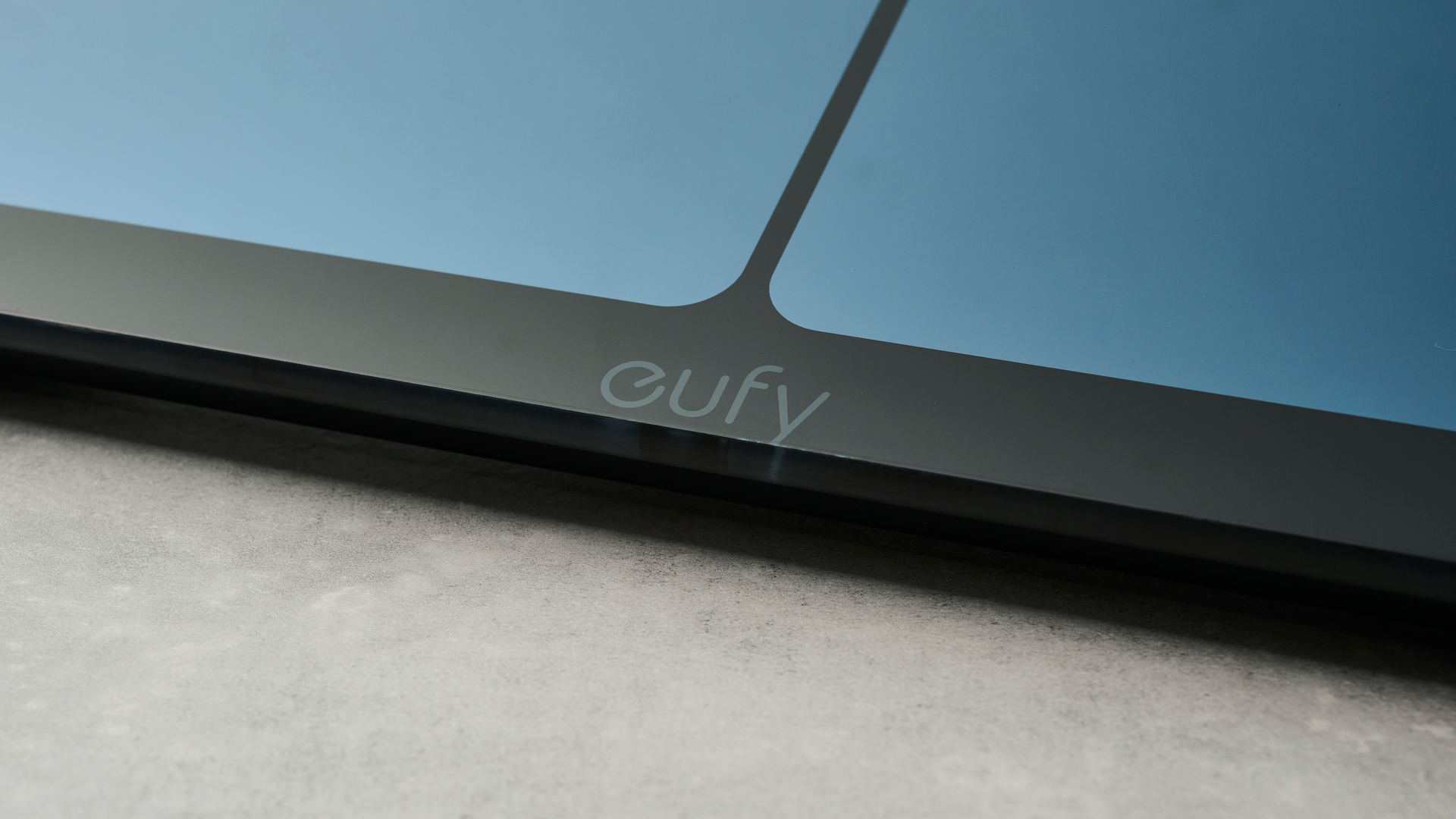
The Eufy Smart Scale P3 is definitely worth serious consideration. It’ll give you highly detailed insights into your health and will be a great tool to help you achieve your goals. I’m personally in dire need of a health kick, so I’ll be using the P3 to track my body fat and muscle mass for sure.
It’s built well, has a solid app and is also fairly affordable at $79, so could be a great alternative to the Garmin Index S2 ($149) for those on a strict budget. It isn’t perfect, though. The P3 wasn’t able to deduce between different users in testing, even if they already had a profile set up, which was frustrating.
The app also lacks an “eyes closed” mode and nags you to weigh yourself with push notifications by default, which might not be healthy if weight is triggering for you. Only having two 3rd party connections to fitness tracking apps also feels very limiting. While this scale is easy to recommend over cheaper rivals like the Fitbit Aria Air, we think it’s worth spending the extra $10 or so on the Withings Body Smart or Body+, if you can.

Peter is a Senior Editor at Tom's Guide, heading up the site's Reviews team and Cameras section. As a writer, he covers topics including tech, photography, gaming, hardware, motoring and food & drink. Outside of work, he's an avid photographer, specialising in architectural and portrait photography. When he's not snapping away on his beloved Fujifilm camera, he can usually be found telling everyone about his greyhounds, riding his motorcycle, squeezing as many FPS as possible out of PC games, and perfecting his espresso shots.
